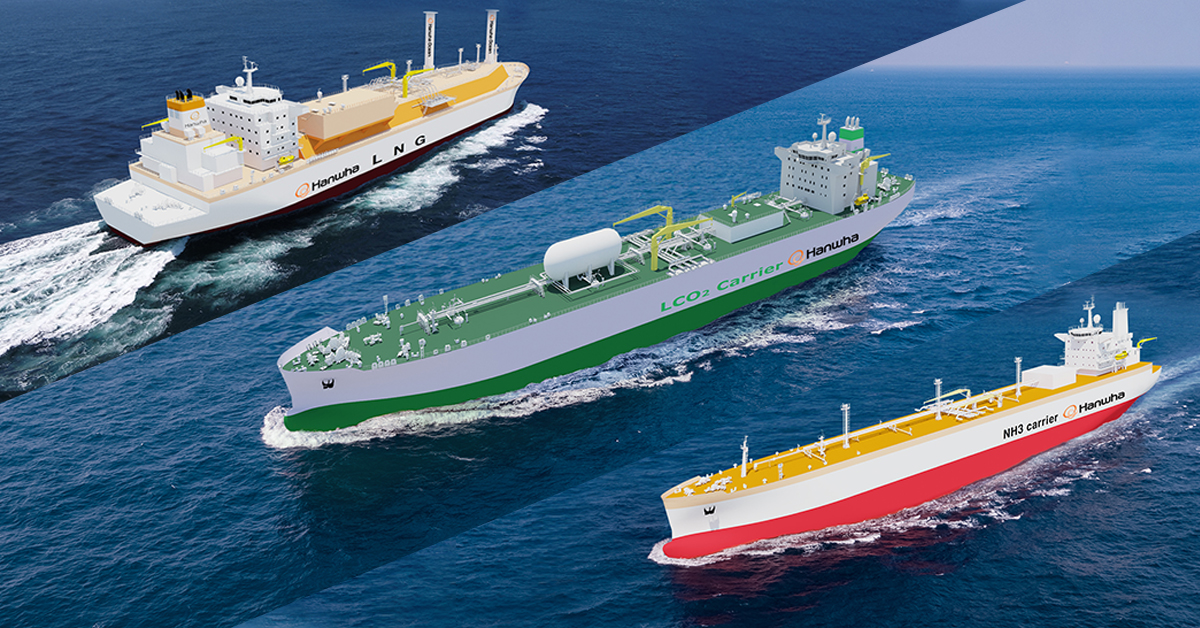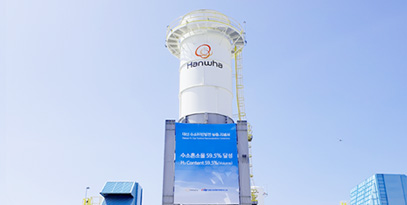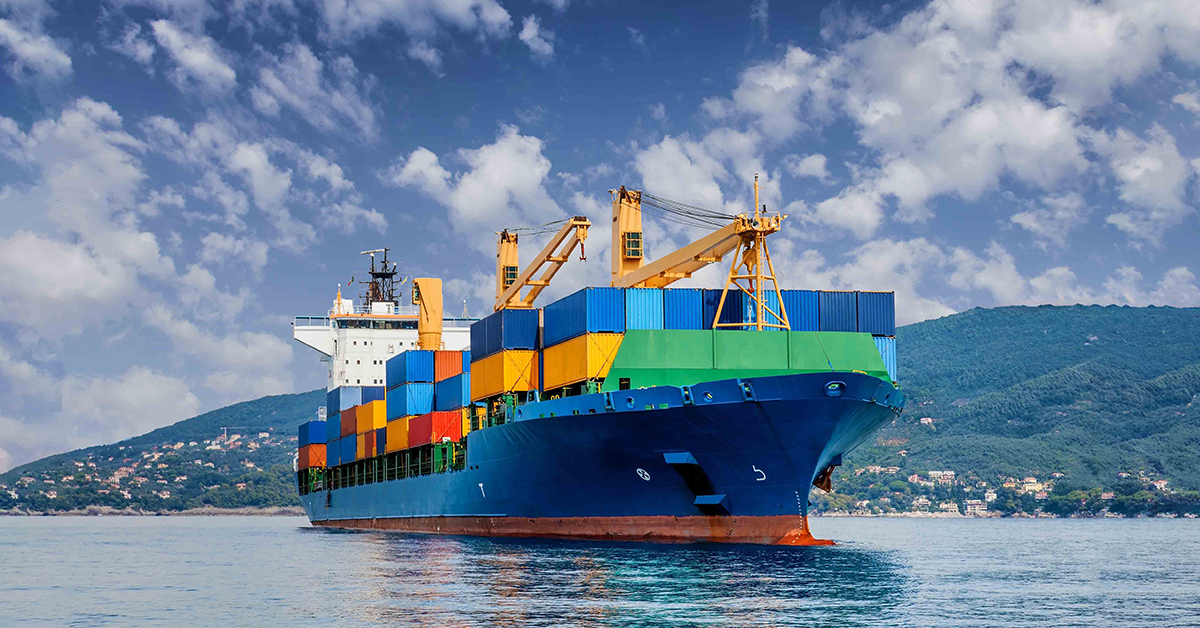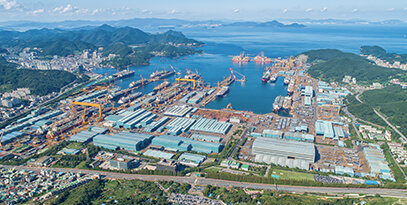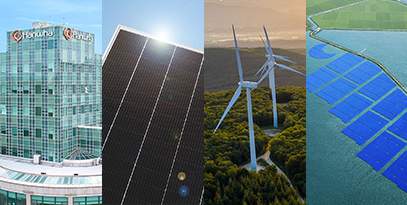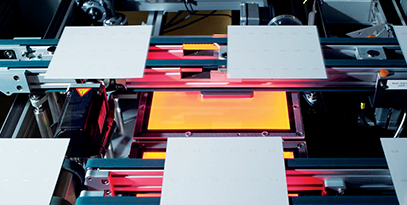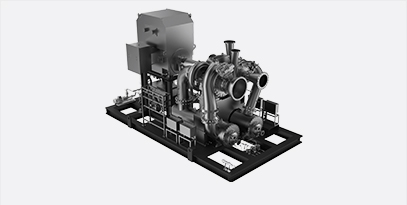Climate Partners: Hanwha’s Work with the World Economic Forum Amplifies Impact of Sustainable Solutions

This year’s World Economic Forum (WEF) meeting in Davos, Switzerland convened under the theme of “Rebuilding Trust,” following a year of divisive global challenges including climate impacts, political unrest, inequality, and slowing growth. In an effort to repair the cracks, leaders of government, business, and civil society came together under a framework of trust to find solutions to these shared challenges in an increasingly complex environment.
This year the content was split across four key areas, spanning diverse topics from security and AI to job creation and climate change. Addressing the urgent mission of achieving net zero, UN Secretary-General Antonio Guterres told Davos the phase-out of fossil fuels is “essential and inevitable,” stating the world must act now “to ensure a just and equitable transition to renewable energy.” U.S. Special Presidential Envoy for Climate John Kerry noted that the private sector will be especially important in meeting these challenges.
While the WEF’s annual meetings provide a venue for public and private sector leaders to take stock of the status quo and plan for the future, the WEF’s work isn’t limited to these meetings. The organization works year-round to drive progress and address key challenges facing our world through its centers. These centers work to integrate private and public efforts to amplify impact.
With a relentless commitment to sustainability, Hanwha is leveraging the power of these partnerships through its participation in the WEF’s Center for Nature and Climate (CNC). Hanwha is a member of three initiatives run by the center: the First Movers Coalition (FMC), the Circular Transformation of Industries (CTI), and 1t.org. Through these initiatives, Hanwha is working to energize change and empower progress through innovation and the power of partnership.
FMC: Decarbonizing the Shipping Sector Through Innovation
The FMC was first launched at COP26 in 2021 to help decarbonize the world’s heavy-emitting sectors through private sector demand for decarbonization technology. The idea is to build early market demand for clean energy technologies by 2030 to catalyze their commercial adoption at scale, while advancing the most critical, emerging climate technologies by leveraging the collective purchasing power of global companies, to reach net zero by 2050.
With around 90% of traded goods transported across the ocean, and the maritime industry accounting for 3% of global greenhouse emissions, shipping is one of the key sectors targeted by the FMC. Historically, oil-based fuels have met over 99% of the total energy demand for international shipping, which means the sector’s use of alternative fuels including hydrogen, ammonia, and methanol will need to increase to achieve net zero. With a broader mission to build a cleaner, more sustainable world, industry will also need to adopt greener shipping technologies.
Hanwha is working to decarbonize the shipping industry through continuous investment in greener maritime technologies. Specifically, the company has ramped up its research on ammonia as a fuel, seeing it as the most promising alternative green energy with relatively lower production costs thanks to existing infrastructures. To overcome the problem of ships needing diesel for the purpose of igniting their engines even when they run on alternative fuels, Hanwha is working to build internal combustion engines with ammonia-fueled gas turbines, eliminating the need for pilot oil. The company is also working on hydrogen fuel cells with integrated ammonia crackers alongside energy storage systems (ESS), which would enable vessels to produce their own hydrogen on board while generating and storing electrical energy that powers the ship forward.
During the WEF 2024 Annual Meeting, Vice Chairman of Hanwha Group Dong Kwan Kim outlined Hanwha’s approach to maritime decarbonization at the session “The First Fossil-Free Ship on the Water.” Stating that “Hanwha believes green ship technology is a central piece of the puzzle,” Kim introduced Hanwha’s plan to innovate ship power generation systems utilizing ammonia, adding that the company’s collaboration with the FMC will “pave the way for new partnerships and pilot programs that enable collaboration with multiple stakeholders, including policymakers, customers, research institutes, and port authorities.”
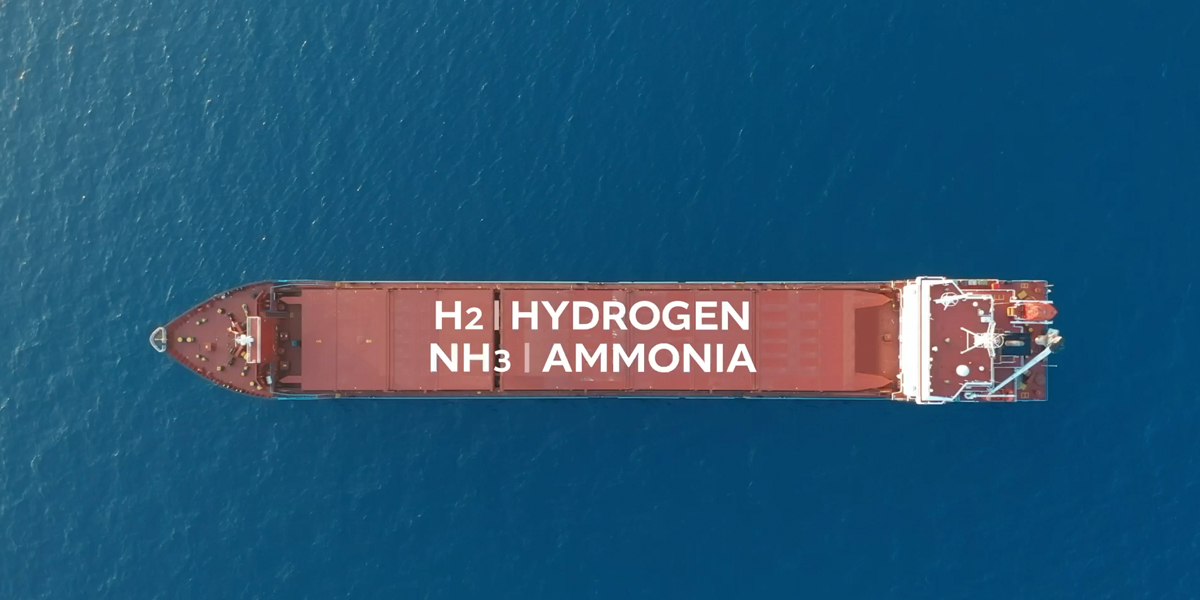
Striving for a Cleaner Energy System with the CTI
The CTI is a cross-industry, multi-stakeholder initiative that aims to enable a growing, resilient, and sustainable economy through the adoption of circularity at scale. A circular economy minimizes waste and encourages the sustainable use of natural resources by promoting the reuse and regeneration of materials or products. Put simply, the initiative seeks to revolutionize the way we extract, use, and dispose of resources.
Hanwha, as a CTI partner, has been contributing to this mission as detailed in a WEF white paper through its hydrogen-to-gas-turbine (H2GT) technology, which enables the retrofitting of LNG-fired gas turbines to run on a mixture of hydrogen fuel and LNG. Because hydrogen produces no carbon emissions when burned, H2GT reduces CO2 emissions and offers an effective intermediary solution for fossil fuel infrastructure as the world transitions to a cleaner energy system. Importantly for circularity, as the energy transition progresses, H2GT can mitigate the risk of gas turbines becoming stranded assets, meaning infrastructure that is rendered unusable before the end of its anticipated lifespan due to systemic changes. The hybrid solution is estimated to extend the lifespan of aging LNG-fired gas turbine parts by more than 20 years, which aligns with the CTI’s vision of unlocking new value and growth in a world of limited resources.
As the clean energy transition continues, the urgency of how to deal with existing coal-fired and other hydrocarbon-based infrastructure will also grow. Hanwha’s strategy of delivering retrofit and repurpose solutions to the global operators of gas turbines is one step on the path to adopting circularity at scale and ensuring as many stakeholders as possible can participate in the clean energy transition.
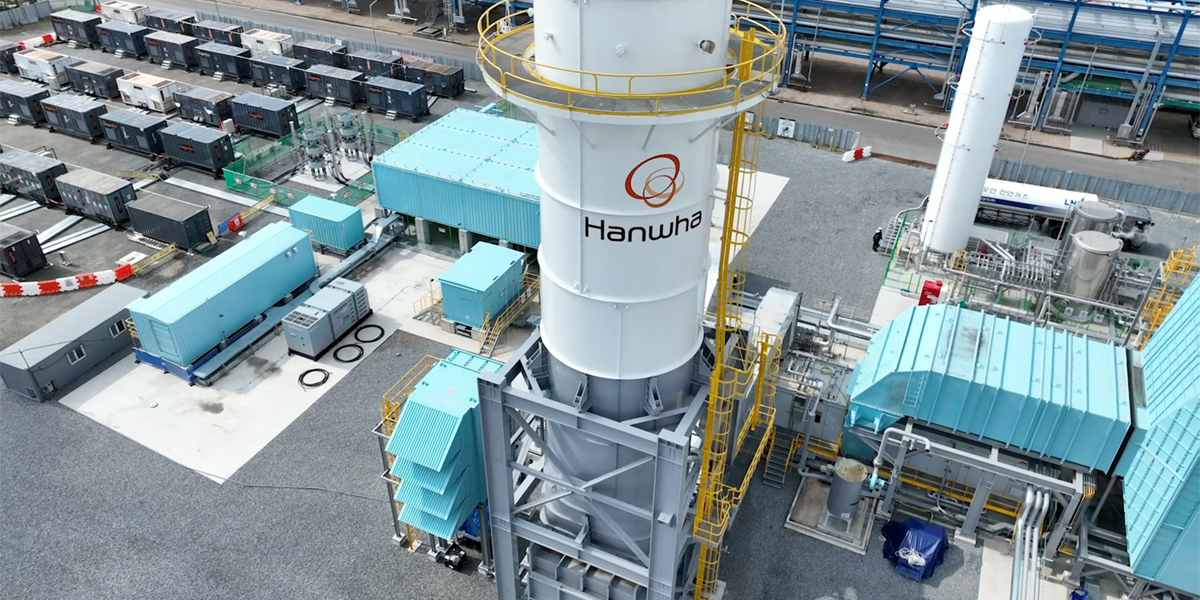
Hanwha’s Daesan plant, where Hanwha set a world record running an 80-MW gas turbine with 60% hydrogen
Hanwha Joins 1t.org
Trees help to purify our air while also mitigating soil erosion, landslides, and flooding. So how does deforestation affect climate change? The impact is vast — forest loss and damage are the cause of an estimated 10% of global warming. This is why the WEF launched 1t.org with a mission to mobilize the global community to conserve, restore, and grow a trillion trees by 2030 for people and the planet.
Hanwha has pledged to create 20 forests worldwide by 2030 with 1t.org by leveraging its global reforestation project, Hanwha Solar Forest. Traditionally, sapling nurseries are powered by electricity produced using fossil fuels, but Hanwha Solar Forests’ seedlings are grown in sapling nurseries powered by electricity generated from solar panels. This solar energy supports the clean water supply, temperature and humidity control, and lighting conditions required to nurture saplings, resulting in a more environmentally friendly, carbon-neutral forest.
Since the launch of the Solar Forest project in 2011, Hanwha has planted over 530,000 trees across 1.45 million square meters in China, Mongolia, and South Korea. In April 2023, Hanwha unveiled its tenth Hanwha Solar Forest in Bonghwa, South Korea, an area previously devastated by a wildfire. There, the company planted over 7,000 native flowering trees such as the mountain cherry and Korean dogwood, expected to absorb more than 64,000 kilograms of carbon dioxide annually. Hanwha made a lasting impact on the region by restoring the ecological, social, and economic ecosystems destroyed by the wildfire. Moving forward, Hanwha will continue to play its part to ensure the world has one trillion more trees guarding the planet against climate change by 2030.
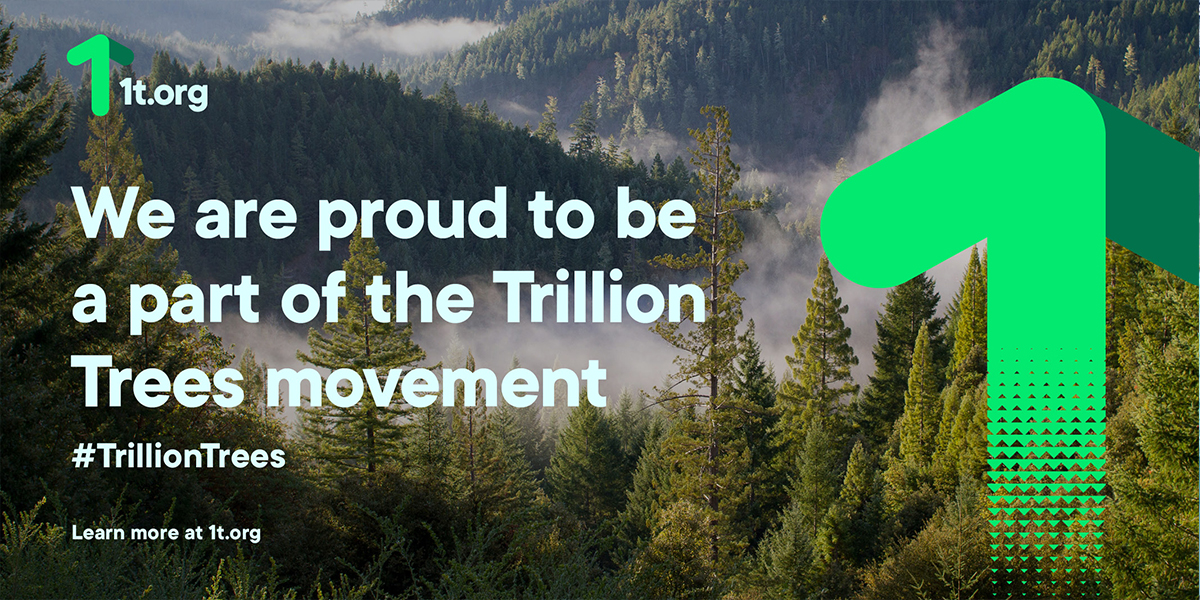
Partnership for Climate Progress
At Davos 2024, world leaders called for global solidarity in the face of geopolitical divides, enhanced efforts around AI governance, as well as swift and decisive leadership to combat the climate crisis and move the energy transition forward. Given that half of the top 10 risks over the next 10 years are environmental, with extreme weather events, critical change to Earth’s systems, and biodiversity loss and ecosystem collapse being the top three, multilateral cooperation and effective deployment of technologies were seen as critical drivers of climate action. As the world grapples with the impact of climate change, this year’s Forum provided a crucial space for public and private sectors to come together to ensure a long-term future that is inclusive, net zero, and nature positive.
As a WEF Strategic Partner, Hanwha is one of 100 leading global companies committed to improving the state of the world, with the belief in the power of collaboration to drive positive change. Hanwha will continue to deliver future-ready solutions and flexible innovations that enrich communities and transform industries, offering them the resources they need to tackle climate change. In close cooperation with the WEF, the company will leverage innovation to drive progress for green shipping, resource circularity, and reforestation. By continuing to collaborate with global partners, Hanwha hopes to deliver reliable solutions that anticipate the evolving needs of the future and achieve synergy through cross-industry collaboration.


